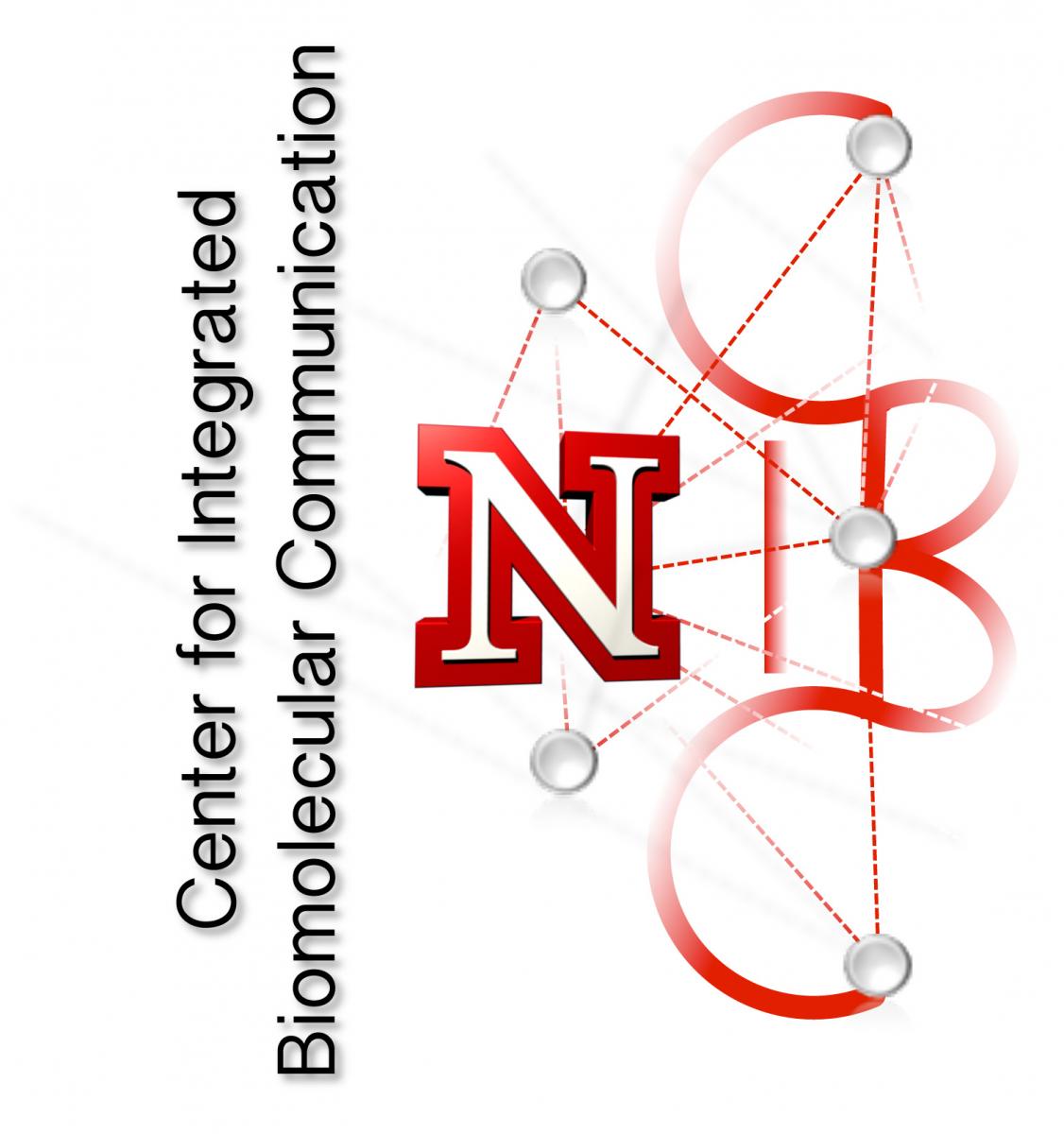
In line with the objectives of the National Institutes of Health’s Centers of Biomedical Research Excellence (COBRE) program, UNL has announced plans to establish the Center for Integrated Biomolecular Communication (CIBC) to work toward strengthening the University of Nebraska’s biomedical research infrastructure.
By integrating the research activities of chemists, biochemists, engineers, and bioinformaticists and leveraging existing capabilities in basic biomedical research, the multi-disciplinary center will foster the development of collaborative research teams to examine complex disease pathways from a wide range of perspectives. In addition to bringing together unique expertise to promote and coordinate interdisciplinary research, the CIBC will support the development of novel methodologies and technologies to probe the communication pathways of complex diseases. Along with the biomedical research infrastructure at UNL, the center anticipates a high impact on the community of researchers within the University of Nebraska system, and more broadly on the international research community. Through the development of advanced methods and technologies, the center hopes to facilitate a better understanding of how cells communicate and integrate metabolic and regulatory pathways relevant to disease development and progression.
Initial research projects will develop cocultures to understand the syntrophy between two mutually dependent human gut organisms (Dr. Nicole Buan, Assistant Professor of Biochemistry), the technology for the molecular-level characterization of protein glycosylation patterns as a means to determine disease-related changes in protein glycoforms (Dr. Eric Dodds, Assistant Professor of Chemistry) and a shared focus on liver disease to include ligand-binding by hepatic sinusoidal endothelial cells under flow conditions (Dr. Edward Harris, Assistant Professor of Biochemistry), developing molecular probes for kinase activity (Dr. Cliff Stains, Assistant Professor of Chemistry), and developing in vitro models to study disease progression (Dr. Srivatsan Kidambi, Assistant Professor of Chemical and Biomolecular Engineering). A Proposed Pilot Project, Modeling and Engineering of the C. albicans Communication Pathways (Dr. Massimiliano Pierobon, Assistant Professor of Computer Science and Engineering), is also underway.
A Systems Biology Core (SBC) and a Data Management and Analysis Core (DMAC), are designed to augment services offered by existing UNL COBRE facilities (Nebraska Center for Virology and the Nebraska Redox Biology Center) and enhance current research capabilities. The Systems Biology Core will facilitate acquisition of essential bioanalytical data to better meet user needs for research requiring mass spectrometry proteomics data, metabolomics data by high-throughput ultra-high field nuclear magnetic resonance spectroscopy and mass spectrometry, metagenomic data by next generation sequencing, and structural data from microscopy. The interfaced bioinformatics Data Management and Analysis Core will provide new capabilities for data manipulation, long-term storage, and analysis and provide critical bioinformatics support to center members.
The administrative core will contribute to the center’s success by developing and maintaining an organizational structure to provide leadership and coordination of CIBC research and related activities that include a faculty development and mentoring plan, enrichment activities to promote membership in the center and encourage new research collaborations and support in transitioning from an IDeA program to a self-sustaining center of biomedical research excellence. Core activities will include support for seminars, an annual center retreat, travel awards for graduate students and postdoctoral researchers, support for short-term faculty or student visits, a research core voucher program, and support for pilot projects. Institutional support in the form of professional development and seed grant funding opportunities will also come from the Office of Research and Economic Development (ORED), UNL’s Agricultural Research Division (ARD), the College of Arts and Sciences and the Institute of Agriculture and Natural Resources (IANR) as well as the departments of Chemistry and Biochemistry.
For more information on Centers of Biomedical Research Excellence and participating institutions, visit http://publications.nigms.nih.gov/Multimedia/Map/COBRE/.
More details at: http://go.unl.edu/0kuw